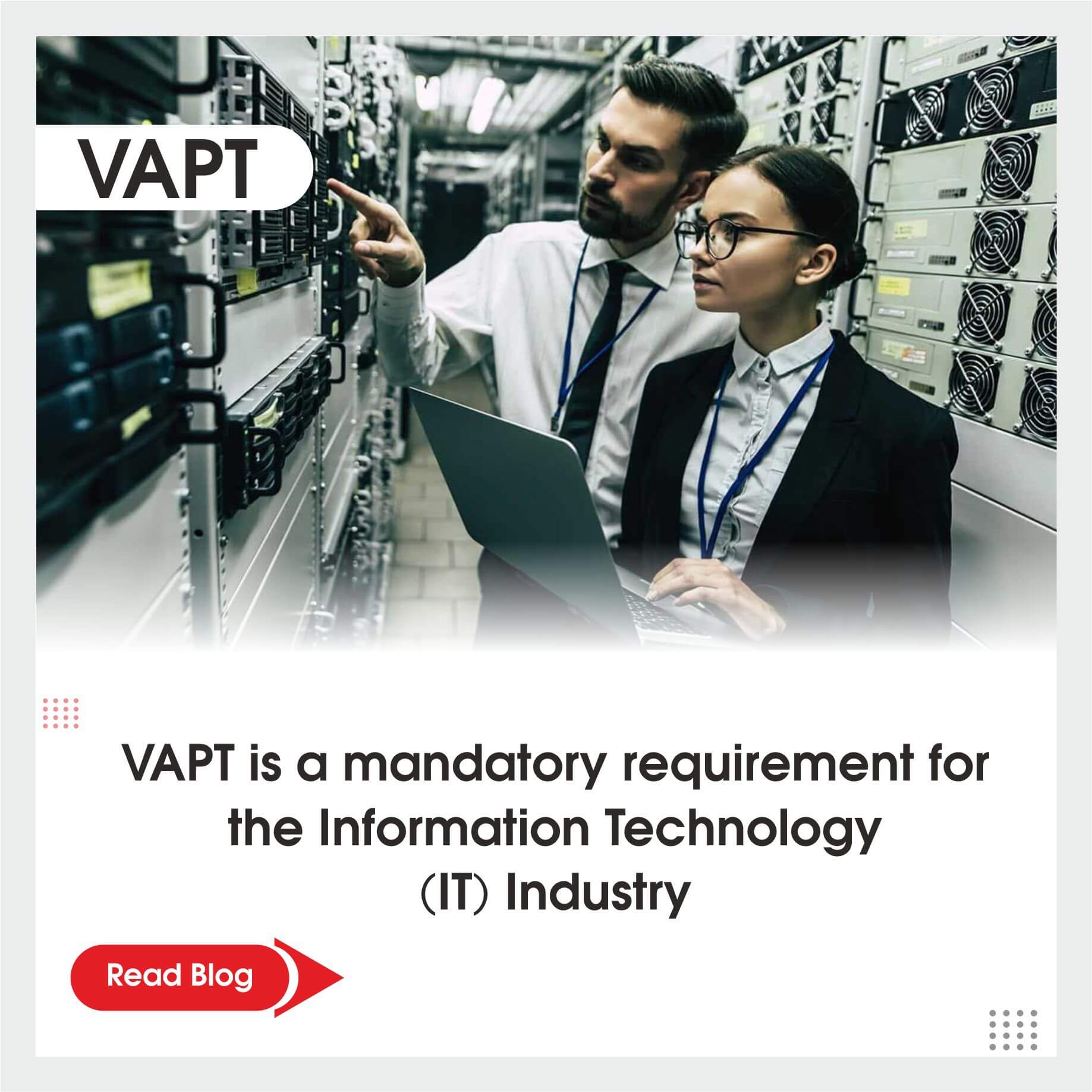Introduction: Understanding the Importance of Continuous Improvement in Education ⮯
The digital landscape is constantly evolving; hence, it becomes necessary for organizations to build robust Information Technology (IT) infrastructure. The Information Technology (IT) sector amalgamates innovation and interconnectedness to ensure the security of digital assets and confidential data.
As organizations become more dependent on digital infrastructure, they become more vulnerable to cyber threats and attacks. Vulnerability Assessment and Penetration Testing (VAPT) is mandatory for the IT industry to safeguard frontline defense against potential cyber-attacks.
Benefits of Vulnerability Assessment and Penetration Testing (VAPT) for IT Industries
An organization can reap the benefits of VAPT assessment with the ISO 27001:2022 standard. Significance of Vulnerability Assessment and Penetration Testing (VAPT) in the Information Technology (IT) Industry with ISO/IEC 27001:2022 Certification are as follows:-
- IT Industries must prioritize vulnerability assessment and penetration testing (VAPT) to ensure robust security measures. Moreover, it helps organizations to protect information assets against data breaches and cyber threats.
- Vulnerability assessment protects valuable data of clients and customers from hackers by identifying potential weaknesses in a network or system. Organizations must conduct a risk assessment to identify potential threats and opportunities to proactively eliminate them and minimize the risk of data breaches from unauthorized access.
- VAPT simulates real-world attacks to evaluate the effectiveness of existing security controls. Moreover, this process helps identify gaps in network security and strengthen their defenses against cybersecurity attacks.
- VAPT protects sensitive data along with safeguarding an organization’s reputation. A single data breach can have severe consequences, including financial loss; moreover, it can also damage the brand’s reputation and attract legal implications.
- IT industries must comply with information security and data privacy regulations such as GDPR (General Data Protection Regulation), ISO 27001, CMMI, SOC-1 and SOC-2 Certification. Moreover, conducting regular VAPT assessments helps organisations comply with international and national regulations and avoid fines and legal penalties.
Why is VAPT a mandatory requirement for the Information Technology Industry ? ⮯
The Vulnerability Assessment and Penetration Testing (VAPT) examines the vulnerabilities during the data and information security test. Moreover, the assessment provides adequate measures to protect against cybersecurity threats. It provides organizations with valuable insights into their security posture by detecting areas for immediate attention. ISO 27001 information security standards mandate VAPT for organizations striving to maintain data integrity and protect customer trust.
Benefits of Vulnerability Assessment and Penetration Testing (VAPT) for IT Industries ⮯
- Data breaches are the most common information security threats experienced by Information Technology (IT) Industries. However, VAPT helps organizations identify and understand the intricacies concerning vulnerable data assets.
- The consumer is the god and holds immense power to change market trends. As a result, organizations must win clients’ and customers’ trust to expand business and generate more profit. VAPT safeguards the organization’s assets and strengthens customers’ trust by demonstrating a commitment to robust cybersecurity practices.
- The IT industry operates in a highly regulated environment with stringent compliance standards. VAPT ensures that organizations adhere to these regulations, avoiding legal consequences and financial penalties.
Conclusion ✅
Vulnerability Assessment and Penetration Testing (VAPT) is an indispensable tool for identifying and mitigating information security threats and risks. Moreover, the assessment monitors organization compliance with the regulatory and world best practices to protect users’ personal and confidential information.



